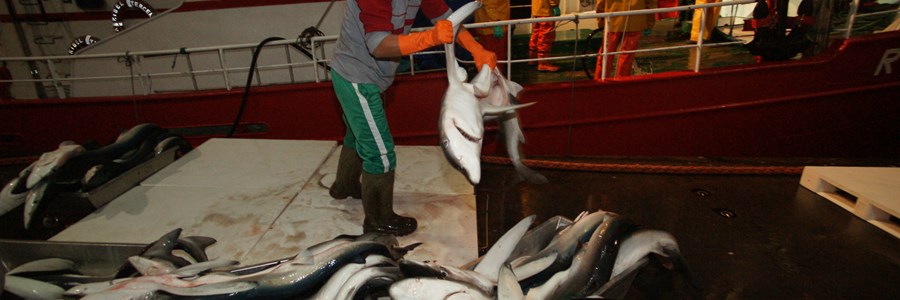Europêche welcomes European Commission’s stance against shark finning

Today, the European Commission has published its Communication in response to the citizens’ initiative entitled ‘Stop Finning — Stop the trade’. The campaign aims to end international trade of loose shark. In response to the campaign, the Commission will launch an impact assessment by the end of the year to measure the effectiveness and contribution of EU rules against finning. The Commission will aim to better enforce the EU’s already strong traceability measures and to improve data relating to imports and exports of shark products. Finally, the Commission will aim at enhancing the role of the EU in the global fight against shark finning. Europêche believes that the current framework in Europe guarantees that all shark catches are legal and sustainable. Even if the policy is functioning well, there is always room for improvement and for that reason the sector welcomes the decision to assess the situation in depth before taking any legislative measure.
The European fishing sector, represented by Europêche, unanimously condemns the practice of "finning" (cutting shark fins and throw mutilated bodies into the sea) by any fleet in the world. The EU fleet has never practiced finning, as evidenced by the fact that no EU fishing vessel has been sanctioned for this practice. Javier Garat, President of Europêche, declared, “In the European market, our consumers value, trade and eat the sharks’ meat. In fact, most of the revenue for the fleet comes from the selling of the meat and not the fins. Nothing is wasted”.
According to Europêche, to guarantee the sustainable management of sharks, their fisheries are meticulously regulated by the EU and by UN bodies across all oceans. In international waters, blue shark caches represent more than 95% of the total shark landings. The latest scientific information shows that the population of this species is abundant and healthy in all oceans. Their fins are easily distinguishable, even separated from the body, due to its characteristic metallic blue coloration, the lack of spines at the base, and other factors. Therefore, fishery inspectors, and also traders, can easily make a visual identification.
As regards finning control, since 2013, the EU requires all sharks to be brought to port with their fins naturally attached. This rule must be respected by all EU fishing vessels operating across the world. According to the NGO community, the EU closed back then any loopholes in the EU system[1]. In addition, once landed, the IUU policy requires national authorities to issue a catch certificate that accompanies the body of the shark and the fins up until the point that they reach the consumer. Furthermore, the widely ratified FAO Agreement on Port State Measures requires the verification and inspection of fishing vessels entering ports to ensure that they comply with the Law.
On top of this, last year, the international community agreed to include nearly 100 species of sharks and rays under Appendix II of the Convention on International trade in Endangered Species of Wild fauna and flora (CITES). This will require an export permit, which will only be granted if the national authority verifies that: (i) the export is not detrimental to the survival of the species; and (ii) the specimens were not obtained in contravention of the national laws.
Mr Garat concluded: “Our fishers have changed the way they operate to ensure the full traceability of shark fins. This has not been easy, and rather costly. We are certain that the new trade rules recently adopted by the international community will require further bureaucratic and economic efforts from the administrations and the sector. The Commission is therefore right in carrying out a fitness and data check before proposing new measures. Banning a perfectly legal and sustainable economic activity in Europe, would only cause financial losses to our companies and would deteriorate the situation in Asian markets.”
Since 2019, the sector has been developing a fisheries improvement programme[2] with a focus on swordfish and blue shark. This shows a clear commitment from the sector to improve science, mitigation techniques and increase fisheries observers on board with ultimate goal to obtain a MSC certification.
ENDS
Press contacts:
Daniel Voces, Managing Director of Europêche: +32 489 26 81 07 daniel.voces@europeche.org
[1] https://shorturl.at/hRZ03
[2] https://fipblues.com/en/fip-blues
Sources: Europeche
Attachments:
Tags: shark, finning, blue shark, RFMO, CITES, trade, fin-attached policy